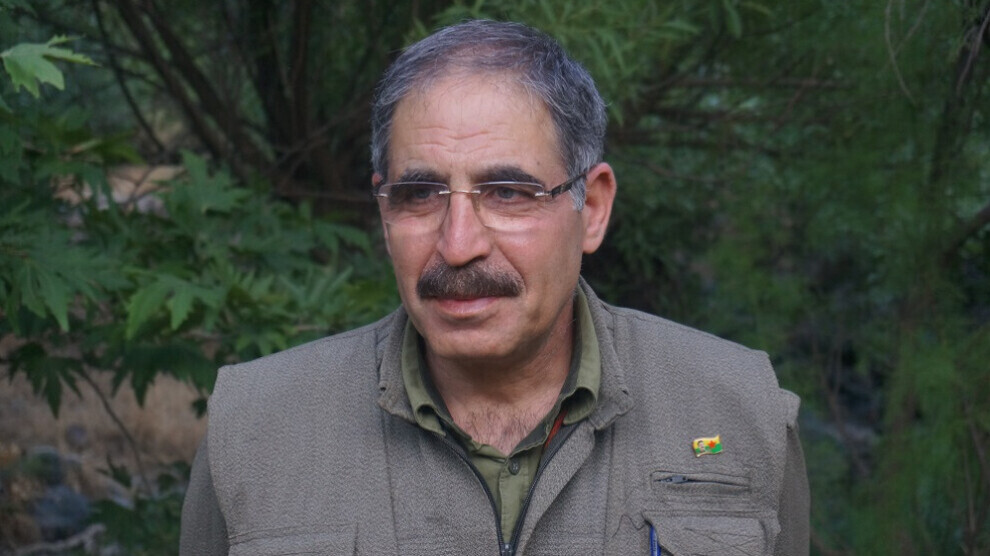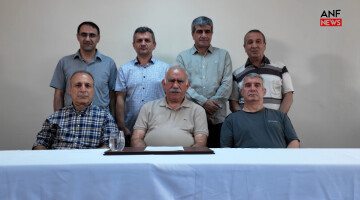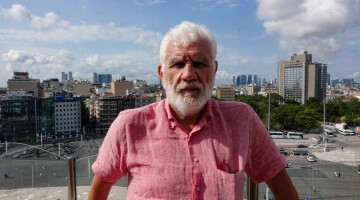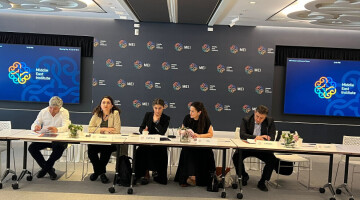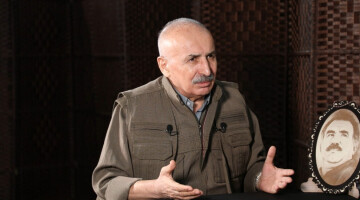Muzaffer Ayata witnessed the beginning of the PKK's armed struggle in prison on August 15, 1984. The PKK co-founder was arrested in 1980 a few months before the military coup and severely tortured in the military prison of Amed (tr. Diyarbakir). He was sentenced to death for "separatism," and the death penalty was commuted to a forty-year prison term in 1991. In 2000, he was released from prison with a lifetime ban on political activity. In 2002 he came to Germany to head the European representation of HADEP/DEHAP. In August 2006, he was arrested and sentenced to three and a half years in prison for PKK membership. He was also banned from political activity in Germany and ordered to report to the police every day.
Today, Ayata is in the mountains of Kurdistan as a member of the PKK's Central Committee. In an ANF interview, he describes how he experienced August 15, 1984, and the impact of the start of the armed struggle in prison.
You were in prison during the action on August 15. How did you hear about the action and what did you feel about it?
I was in the 35th collective cell in Amed prison at that time. The friends on death fast heard about it during their treatment in the hospital through relatives. There were also new arrivals who knew about it. We did not have official information, but we were sure that Abdullah Ocalan was alive and leading the work. That he is fighting, organizing the party and doing everything was necessary for the revolution. We relied on this conviction even in the most difficult moments. Those who knew Rêber Apo (Leader Öcalan) did not doubt it.
We heard about the incident on television. Radios and the like were forbidden, but with the resistance we managed to get a television set into the cell. We saw the news and it said that a group of terrorists or separatists had carried out an attack in Eruh and Şemdinli. I think it was two or three days later. At the beginning, it was not reported. We were trying to understand what had happened. The report aroused various associations among the Kurdish people; the tearing of silence, a light in the darkness, a challenge to fascist rule, an uprising, a search. Some probably also assumed that it was a single incident.
However, it was clear that joy would arise in the population. Due to the extremely humiliating actions of the state, the whole country was terrorized. Everyone was condemned to silence, the state arbitrarily arrested people and tortured them as long as it wanted. Fear and darkness reigned in the country, people were intimidated and worn down. It was most extreme in the prisons. We found ourselves locked between four walls in the hands of the state. Amed prison was a special pilot project. There was oppression all over Turkey, but here there was unbridled racism. The PKK, the Kurds and Kurdistan were to be concreted away for good, never to come back to life. The military junta had taken over rule in Kurdistan and institutionalized assimilation. The country shrouded itself in silence.
The awakening of the Kurds with the PKK and the socialist movements was a phenomenon that no one had expected. For the state, it was like an unforeseen accident. For this reason, the coup was accelerated. All leftist organizations in Turkey were largely crushed. Those who fought were put in prison. There was no longer any power of resistance. Rêber Apo had foreseen this and had gone abroad. This was a strategic decision. In accordance with this retreat tactic, an attempt was made to take abroad all friends who had not yet been caught. However, many cadres had already been arrested before the coup.
Racist fascists were brought to Amed and thus began a systematic torture attack. None of our forms of resistance produced results and no one could rein in the fascists. Outside, society was buried in darkness. Parties, parliament, unions, everything was banned. Nobody could resist against the junta. It was supported by NATO and the USA. The left socialist movements and especially the Kurds were to be politically eliminated. They were to disappear from the agenda and eventually deny their identity, repent and surrender to the state.
The great resistance in the prisons meant that all prisoners were able to catch their breath. Nevertheless, a climate of silent fear still prevailed. It was in this situation that we heard about the action on August 15. For the people and organizations who were following the political developments, who had dreams, hope and a political aspiration, this news was of extraordinary importance. I remember the deep joy we felt. The first thing I said was: that we could still experience this! Even if we die now, nothing was in vain.
In fascism there are no borders, there are no rights, no logic and no justice. We were constantly told that we would regret being born. This did not happen once, we experienced it every day. That is why this message caused an indescribable feeling of joy in us. It was not like a holiday, nor was it in the form of shouting and dancing. It went much deeper and was a historic moment. A moment of reckoning with fascism, a deeply felt relief. You tell yourself all the time that the fascists have to take a punch to the chin, and finally it happens. We had been waiting for this day, because this was the language they understood. There had to be such a response. There was no other way to remind them that it was about people. The more power they got, the more they lost themselves and committed greater and greater crimes.
To be continued

